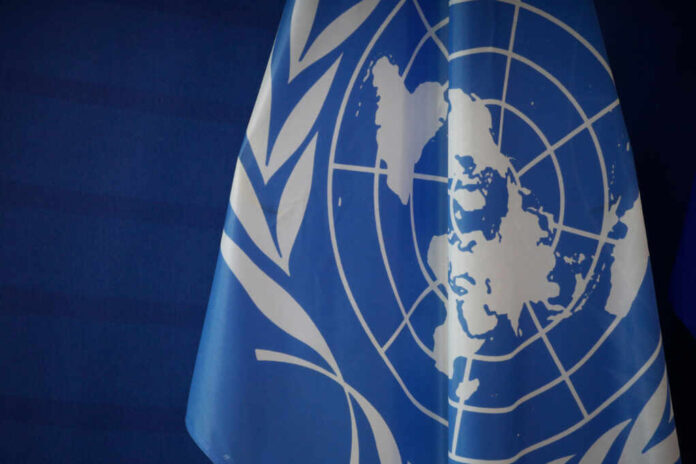
UN sanctions reimposed on Iran threaten global economic stability, raising concerns about inflation and financial security among conservatives.
Story Highlights
- UN sanctions have led to a sharp rise in inflation and currency devaluation in Iran.
- The sanctions target Iran’s oil exports and banking sector, exacerbating economic challenges.
- Iranian rial plummets by 20% within a week, sparking public protests.
- The US and EU insist on compliance with nuclear agreements as a condition for relief.
- Humanitarian impacts are significant, with shortages of essential goods reported.
UN Reimposes Sanctions on Iran: Immediate Economic Fallout
In September 2025, the United Nations Security Council reimposed sanctions on Iran, citing violations of nuclear agreements as reported by the International Atomic Energy Agency. These sanctions, which target key sectors like oil exports and banking, have already triggered a severe economic crisis. Iran’s currency, the rial, suffered a 20% devaluation within a week, leading to a spike in inflation that has left ordinary Iranians struggling to afford basic necessities.
Public discontent has been palpable, with protests erupting in major cities. The Iranian government has condemned the sanctions as “economic warfare,” but the US and European Union maintain that Iran must adhere to nuclear compliance to see any sanctions relief. These sanctions are not only a geopolitical maneuver but have also deeply affected the lives of ordinary people, exacerbating poverty and unemployment.
Watch: UN sanctions reimposed on Iran, sparking inflation and economic anxiety
Sanctions’ Broader Impact on Global Markets
The reinstated sanctions have implications beyond Iran. Oil markets are particularly sensitive, as Iran is a significant supplier to Asia and Europe. The reduced supply could potentially drive up global oil prices, affecting consumers worldwide. Additionally, Iranian banks are now cut off from international systems like SWIFT, further isolating the country’s economy and complicating humanitarian efforts.
Businesses, especially importers and exporters, are facing operational challenges, and regional neighbors are wary of potential refugee inflows. The ripple effects of these sanctions could lead to economic contagion in the region, raising concerns among global market analysts and policymakers.
Humanitarian Concerns and Calls for Diplomacy
While some essential goods like food and medicine are technically exempt from sanctions, banking restrictions have hindered their importation. This has raised alarms among human rights organizations, which are advocating for more targeted sanctions that minimize humanitarian impact. Despite these challenges, the international community remains divided on the efficacy of sanctions as a tool for ensuring compliance and stability in the region.
Experts argue that without renewed diplomatic engagement, sanctions alone are unlikely to halt Iran’s nuclear ambitions. As the world grapples with the economic and humanitarian consequences of these sanctions, the call for a balanced approach that includes dialogue and negotiation grows louder.
Sources:
International Monetary Fund (IMF), 2025 Country Report: Iran
World Bank, Iran Economic Monitor, 2025
United Nations Security Council Press Releases, 2025
International Atomic Energy Agency (IAEA) Reports, 2024-2025
Bloomberg, “Iran’s Rial Plunges After UN Sanctions Reimposed,” September 2025
Reuters, “UN Security Council Reimposes Sanctions on Iran,” September 2025

























